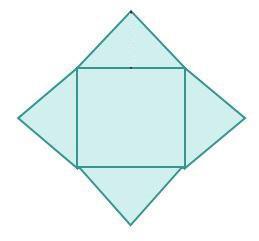
Mathematics, 20.10.2020 04:01 santosbeti90
The Pythagorean Theorem states “If it’s a right ∆, then a^2+b^2=c^2.” Which of the following is the Converse of the Pythagorean Theorem?
A.
If it’s not a right ∆, then a^2+b^2=c^2.
B.
If a^2+b^2≠c^2, then it’s not a right ∆.
C.
If a^2+b^2=c^2, then it’s a right ∆.
D.
If it’s not a right ∆, then a^2+b^2≠c^2

Answers: 3
Another question on Mathematics

Mathematics, 21.06.2019 18:00
Write an equation in slope intercept form of the line passes through the given point and is parallel to the graph of the given equation (0,0); y=3/8 x+2
Answers: 1

Mathematics, 21.06.2019 19:00
The area of square garden is 300m squared. how long is the diagonal?
Answers: 1

Mathematics, 21.06.2019 20:00
Apatient is to be given 35 milligrams of demerol every 4 hours. you have demerol 50 milligrams/milliliter in stock. how many milliliters should be given per dose?
Answers: 2

Mathematics, 21.06.2019 21:50
Which is the graph of this function 3 square root of x plus one if
Answers: 1
You know the right answer?
The Pythagorean Theorem states “If it’s a right ∆, then a^2+b^2=c^2.” Which of the following is the...
Questions



Chemistry, 01.10.2021 01:50



Mathematics, 01.10.2021 01:50





Mathematics, 01.10.2021 01:50



History, 01.10.2021 01:50


Computers and Technology, 01.10.2021 01:50

History, 01.10.2021 01:50

History, 01.10.2021 01:50

Mathematics, 01.10.2021 01:50





